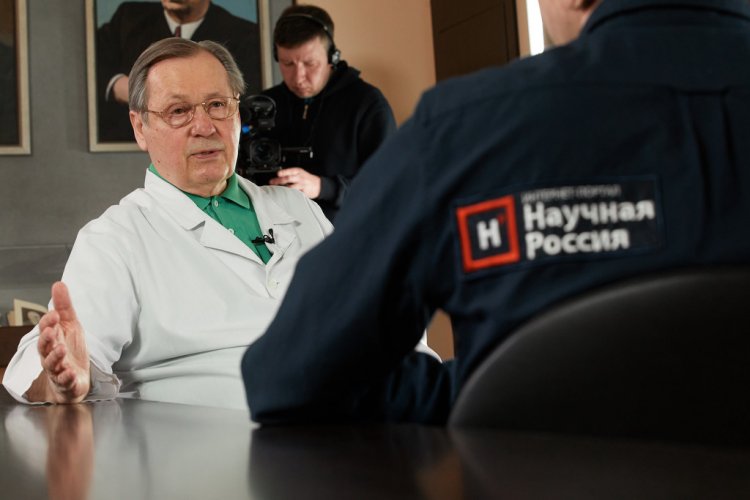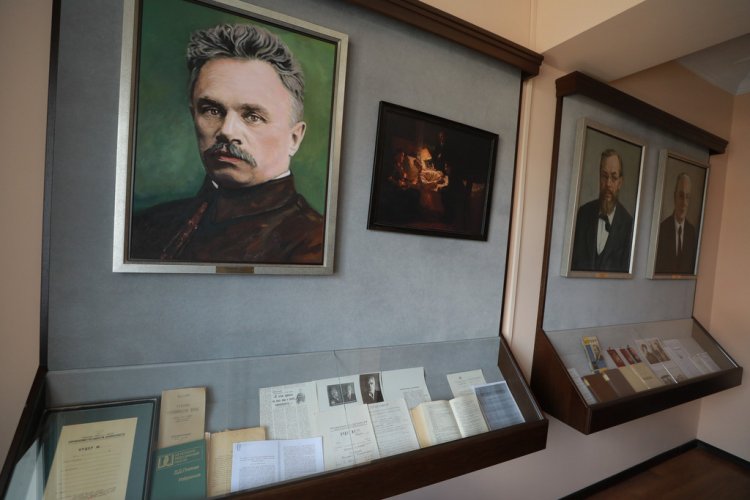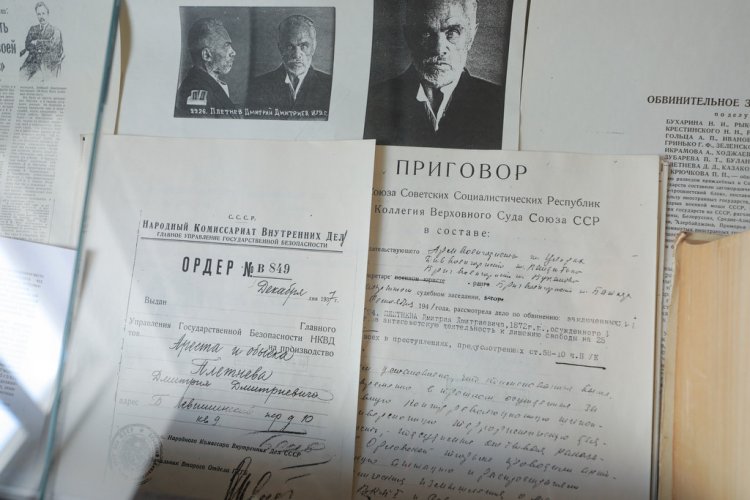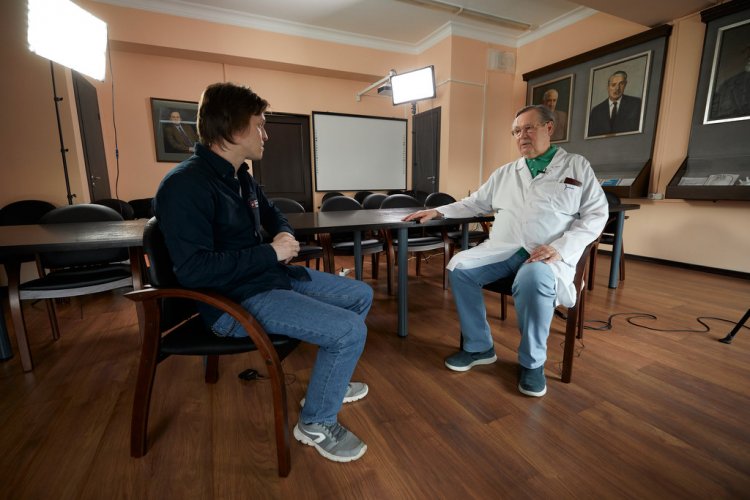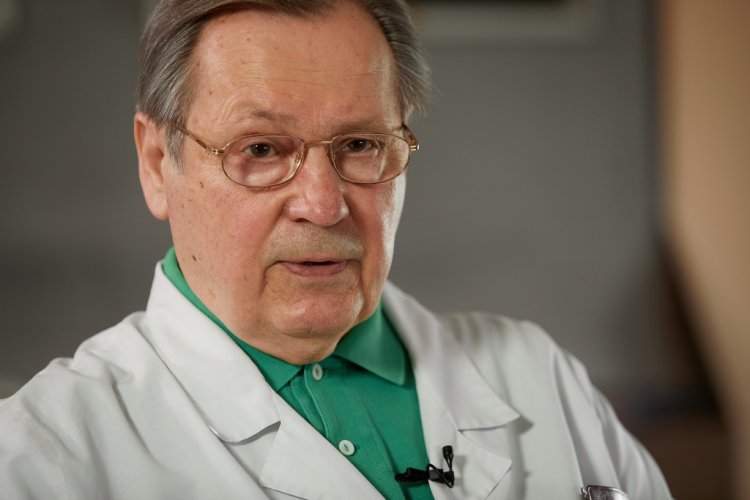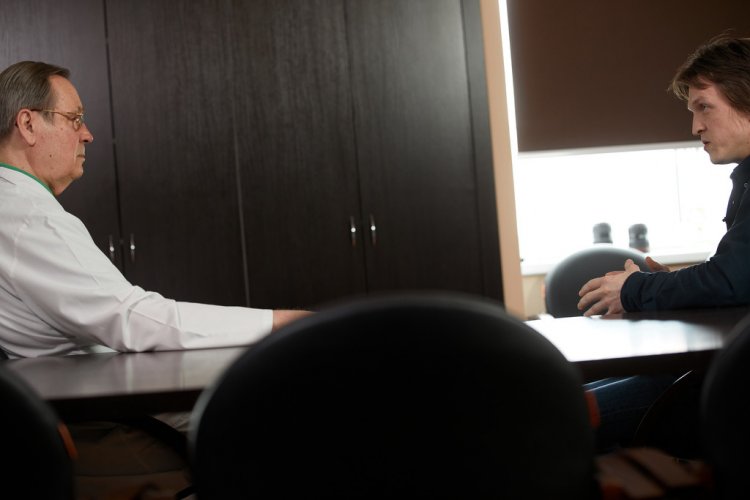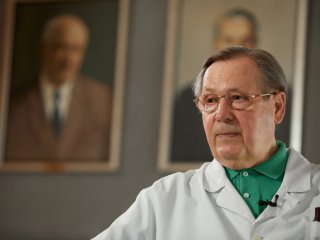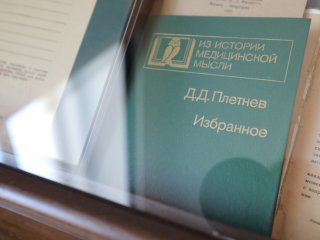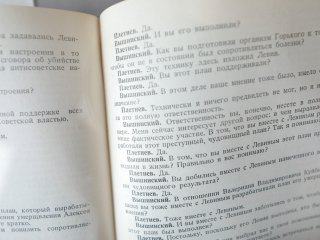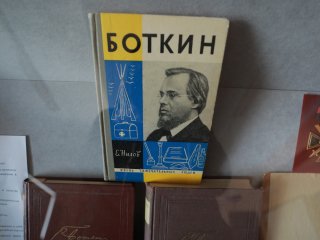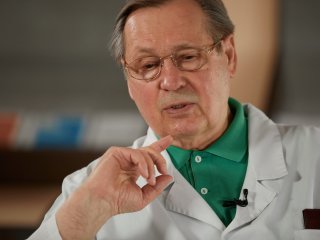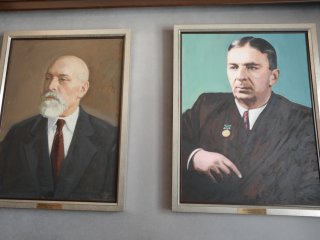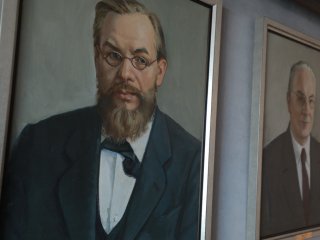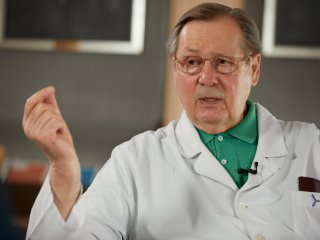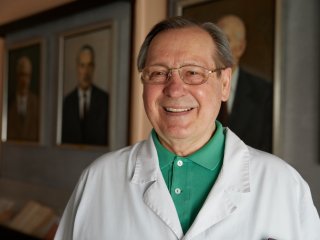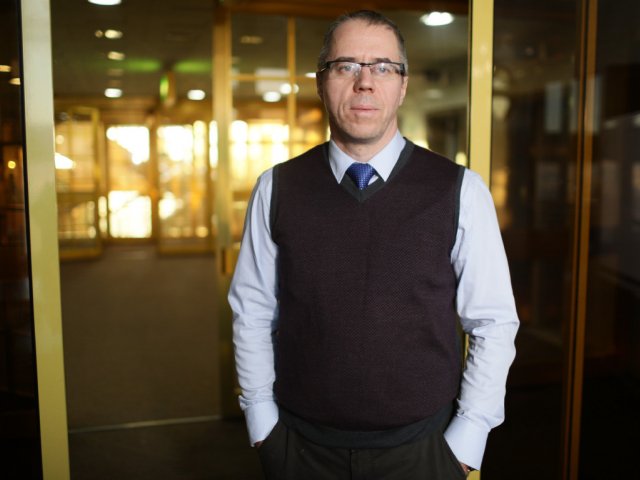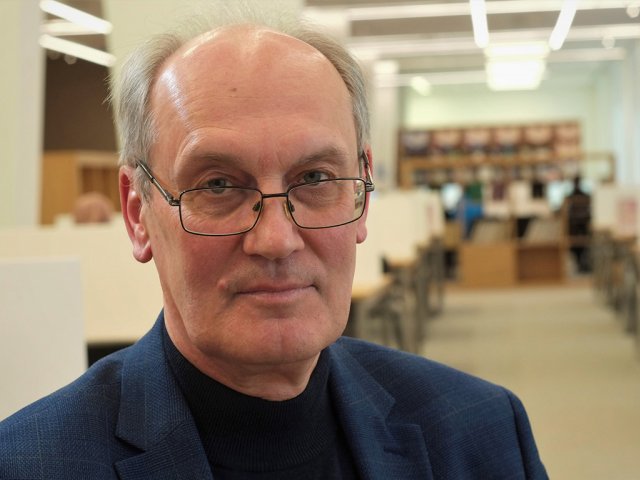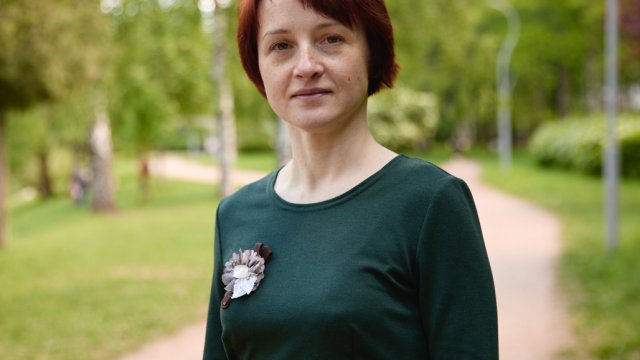Since early 2021, the main corona virus topics are about vaccination and new strains. The vaccination is mentioned in the context of situation becoming stable, while new strains remind that the pandemic is still here.
Interview with Academician Aleksandr Chuchalin
Academician of the Russian Academy of Sciences (RAS), Doctor of Medicine, pulmonologist Aleksandr Chuchalin and portal Scientific Russia have discussed the scientific and ethical aspects of pandemic: how the structure of voluntary informed consent looks like, who and how should inform the society during the pandemic period in order to avoid fears due to unawareness or fake news, how to treat patients who refuse from aid and therefore put other people in jeopardy.
- Half a year ago, when the pandemic began, the virus was not studied to detail. How did the physicians behave in that situation with regard to informing the patients about a new threat?
- The pandemic that haunts us today as before constitutes a dynamic problem: our perception of it now is different from the way that we took it a year ago.
The pandemic began in 2002 as atypical pneumonia or SARS – severe acute respiratory syndrome. Nine years later, the disease broke out in a different place – Saudi Arabia – and received name MERS (Middle East respiratory syndrome) there.
I mean that we have been careless. I have written a survey about it, and my guess has turned out to be true: the virus mutates during a certain biological cycle – 8-9 years. Today, we see the third outbreak of corona virus infection, and it has caught us off balance. The diagnostic tests were not ready, while the program of drug therapy was missing. All we had was of pure empiric nature.
Naturally, the mankind should have got together in the face of this total threat, and the world demonstrated a very high level of research organization. History has not known such scope of studies before. It is true for all areas: epidemiology, primary, secondary and tertiary prevention, disease manifestations, complication control. The studies are about vaccinology and those manifestations of disease that take shape in post-COVID period, as the disease does not come to an end when the acute phase is over.
Was the world ready for implementing the principles of voluntary informed consent (hereinafter referred to as VIC – ed. note)? Eventually, VIC is about deep respect of personal dignity, human autonomy, reasoning and decision of a person based on being informed, on awareness. Awareness means the ability of speaking the truth. When it comes to pandemic and analysis of what some of our scientists say, the most discouraging fact is the one of their inability to tell the truth. Finally, VIC means personal consent.
The interview has been recorded at the City Clinical Hospital named after Dmitry Pletnyov (he is at the left in the portrait).
D.Pletnyov was arrested on framed-up charges and executed in 1941
2021 – 75th anniversary of the closure of the International Military Tribunal in Nuremberg. During the tribunal, the case of physicians working in the death camps of fascist Germany was severed into a separate suit. These doctors promoted the ideology of Nazism on the territory of Germany, Poland, former Soviet Union and other countries. During the sitting of the military tribunal, it was becoming clear that the phenomenon in question was an ethical catastrophe, collapse of all moral pillars of the society that had formed up in the middle and at the end of 1940s. At that time, the decision on working out the ethical code being necessary was taken. The civilization split into two periods – the one before the Nuremberg process and the one after it.
The first point of the ethical code is about the voluntary informed consent. It comprises the main principles – profound respect of human personality, as well as the autonomy of their rights and freedoms. These are the guiding principles of VIC.
If we take our country, we see that, unfortunately, we had different ideology and different country in the initial period of ethical code formation, so these topics were not discussed publicly. It was not a tool of interrelations for us. Speaking the language of ethics, we can say that the methods of ethical thinking and education were not being developed. Some progress started being observed only at the moment when insurance medicine came into our everyday life. The health centers had to establish cooperation with foreign structures, pharmaceutical companies, producers of medical equipment.
As for the western countries, they have drawn far ahead of us. They built the respective legal system and worked out legislative acts. Some of these acts have even shaped the world order, like the Universal Declaration of Human Rights and Declaration of Bioethics and Human Rights. VIC is based on ethics and law. There are two respective structures in America: Human Rights Committee and Ethics Committee with each of them checking the activities of the other one. It was in the history of new Russia that we grew aware of this problem and started implementing the respective principles.
As far as the pandemic is concerned, I am the witness of our scientists’ inability of using the tool of voluntary informed consent in the right way. I read documents that are being drawn. They are titled either Instruction of Informed Consent or Informed Consent. Word voluntary is missing, though it is very important.
None of the words should be omitted or thrown out of linguistic structure voluntary informed consent. Notion voluntary means profound respect of human personality and their dignity. Notion informed stands for the ability of telling the truth. Consent means that a person takes the decision independently and on their own accord.
Before the Nuremberg Tribunal, we had paternalism (derived from Latin paternus – the system whereby the authorities provide for the daily needs of the citizens, while the latter let the authorities dictate the models of behavior for them; ed. note). When the ethical code was adopted, the period of VIC came in. In the modern world that we see new medications being discovered, new medical instruments being implemented, the physicians preparing patients for complex surgical operations and tests, as well as explaining the nature of treatment which the patient is to have, everything is based upon how the doctor presents VIC. Sometimes, we see the physicians grunting: “New bureaucracy, new papers, new conditions.” Actually, it is not so. This principle is innate, typical of our profession. This is what philosophers Ivan Ilyin and Nikolay Berdyayev were writing about. Ethics is actually a human science, and VIC is its tool. Physicians are, more than the specialists in other professions, related to human beings. This idea was brilliantly formulated by Vikentiy Veresayev.
In the pandemic period, our activities should be fruitful and efficient. However, the number of people vaccinated is not the true measure of efficiency here. The work should be fruitful, and we cannot reach out to the people without VIC. In order to succeed in accomplishing this mission, the health officials, ministers and vice premiers ought not to make ethical mistakes. Unfortunately, the number of these mistakes is extraordinarily high today. It is VIC as a tool that forms ethical thinking and human education in the field of ethics.
Photo: Nikolay Malakhin, Scientific Russia
- Pandemic is a phenomenon that affects the whole world. Each person is in jeopardy today, yet not all of the people are ready for accepting medical aid due to either limited awareness or some other reasons. Moreover, their refusal from medical aid puts other people at risk. How can this situation be seen from the point of view of bioethics?
- There was a remarkable scientist – Vladimir Bekhterev (Russian and Soviet psychiatrist (20.01.1857 – 24.12.1927) – ed. note) in the past. He warned about infection and pandemic outbreaks leading to psychic epidemics. History knows riots and revolts breaking out after cholera epidemic. Aleksandr Pushkin described such a situation very well. He was staying in Boldino and had to come back to Saint Petersburg to his bride, yet could not pass through the cordons, as police and military forces would stop all travelers due to cholera revolt. This is what human behavior looks like in the period when pandemic is taking shape. It is one of its qualities.
When a person is negatively predisposed, the society should figure out what has been done, what education has been given to this person, and how it has managed to persuade them, yet not in the form of order. The society ought to look for a language for communication with the individual. We can do nothing in this regard using orders alone, if there is no respect of personal dignity and no autonomy of human rights and freedoms. It is a serious challenge for the process organizers: governments, ministries and chiefs of healthcare departments.
Unfortunately, the universities are poorly involved in the process of educating the society. The professors may deliver lectures, come forward with explanations, etc., yet we have lost universities, as a constituent element of the process. However, the American universities, for instance, have assumed an active attitude towards life in COVID environment. The universities of San Francisco and Chicago, as well as the ones of New York and some other higher educational establishments are leading today. I see the US professors being extremely active in communicating with the people, and the Americans have already vaccinated about 100 million people, which is a lot (the interview was recorded in late April 2021 – ed. note). Or take Cuba, for instance. This country is seldom cited as an example, yet they have managed to vaccinate over 80% of population there. Moreover, Cuban professors and teachers played a serious part in it. They provided the respective knowledge. Lack of knowledge leads to phobia and fear.
Today, electronic education joins the process as well. We are living in the period, when technologies allow for providing a high level of knowledge to an individual, which is necessary to prevent phobias from looming over them.
Our organizing structure is to be blamed for failure to take advantage of university potential, involve universities in providing knowledge for the society. In the Soviet Union, for instance, the system of public health education was working actively enough. When the war was over, and the USSR faced serious demographic challenges, the authorities found a number of solutions: the Academy of Medical Sciences was established, as well as such structures as public health education one, not to mention dedicated research institutions and health centers – the ones of hygiene, oncology and cardiology. Thanks to these measures, the USSR managed to improve demographic indices within the shortest possible period of time. At that time, words voluntary informed consent would not be pronounced, but there was no negative attitude towards the healthcare projects.
- Speaking about awareness or being informed, let us take the conversation between the physician and patient with the former informing the latter about the course of treatment for instance. Where is the border line that separates informing from imposing one’s opinion using authoritarian methods?
- There are certain principles that the physician should adhere to during this conversation. Modern guidelines recommend the participation of a third party, i.e., of three parties – the doctor, patient and witness. The witness ought to fix that the physician has explained everything in a clear way, while the patient has understood them. The guidelines of UNESCO say that human rights committees must monitor the situation.
Now, the doctor getting prepared for meeting with their patient should adhere to a certain text. This document ought to undergo professional expert appraisal on the part of professionals and reflect the views of medical community, for instance, cardiologists, pulmonologists, specialists in communicable diseases, etc.
It is recommended to prepare the document in such a way, as to let a person read it at home, consult specialists, talk to their family about it and take the decision. The individual should on no account give their consent at once, during the meeting with doctor. The French are very scrupulous in this respect. Their system is actively developing innovative approaches to ethical interrelationship, the one between the physician and patient in this case. Their models really deserve serious attention. Using pressure aimed at making the patient give their consent is completely out of question.
Academician of the Russian Academy of Sciences, pulmonologist Aleksandr Chuchalin
- The disease is in the focus of public attention in the pandemic period: there are a lot of publications in various sources, and all of them are supported by scientific evidence. Sometimes, fakes appear, and people may believe them. Is it a problem for physicians who try to communicate actual state of things to the public?
- As for the credible medicine, we call it evidence-based medicine. Such information is required for providing certain knowledge of facts to the public. This information is taken from the scientific research. At the beginning of our interview, I have mentioned the organization of unprecedented scientific research that has been carried out over the past 1.5 years. We have never been the supporters of such massive investigations.
Now, I would like to come back to universities and professors. It is the profession that allows a person to distinguish evidence-based information from the fake one. The society should be educated by the figures having authority. Otherwise, the people will lose respect towards state structures. It is a serious problem indeed. That is why Vladimir Bekhterev would talk about psychic epidemics. Under the influence of fake information, the public may misunderstand the real state of things and assume a wrong view of it.
Thus, the information should be unbiased and based on strong evidence. Here, we should make the role of professors and teachers clear, as it is their task to convey this information to the public.
– Last year, we saw such a phenomenon as COVID-19 vaccine race. It was seriously discussed in the media landscape. Is it acceptable to publish decisions that are of medical and political nature simultaneously?
- I am very active in monitoring the situation, which takes shape with regard to this very problem. I listen to lectures and read articles that are published by the credible periodicals. At the meeting of editorial board of leading journals, there was a call for printing immediately the papers which disclose these or that confidential data. Especially, it is true for the scholar papers of Chinese scientists. They are made public at once by such magazines, as New Vision Medicine or The Lancet.
The question is how this information is presented in the western countries and in Russia. Sometimes, I feel discouraged: as far as research findings are concerned, I have never met criticism towards the vaccination program implemented in Russia. On the other hand, our sources make spiteful remarks.
There was a case, for instance, when a 34-year-old man died after the injection of Pfizer vaccine in Miami. Well, the vaccine was injected to him, and the man died two weeks later due to hemorrhagic shock. The American doctors made the whole world think: “What has happened to him?” I have also taken part in this process. Eventually, medical community Doctors Without Borders came to the conclusion that the vaccine had had nothing to do with the changes in the man’s organism that led to the patient’s death.
In our case the information is full of spiteful remarks, but mischievous information is non-collegiate. It is a blatant violation of ethics of interrelationship between physicians. Media play a very important role here, yet they have to make publications on the basis of other people’s position.
Photo: Nikolay Malakhin, Scientific Russia
– A list of voluntary informed consent is handed out during the vaccination today. Have you seen it?
– I have seen them on several stages. The texts that I have read contain glaring ethical mistakes. Working in cooperation with the Chumakov Institute, I have written what is in line with the requirements of voluntary informed consent.
– Who should draw up this text – physicians or lawyers?
- There ought to be a special structure which controls the quality of VIC. I mean research and practice associations. As a rule, they comprise 1.5-2 thousand doctors and have a board of experts. However, there are very few experts in communicable diseases in our country. As far as the number of professional virologists is concerned, the situation is actually catastrophic.
“Who should be responsible for drawing up the text of voluntary informed consent?” It is a challenging, hot question. Well, the text can be finally drawn up, but who will approve it? Who is to give the green light for using this kind of text? There are people who can draw it up in Russia, while the structure that can approve it is missing.
That is why we should look at the process that takes place in foreign countries, at what they are doing in France, the USA, Great Britain, Germany and Japan. As for the United States, the expert examination of such texts is conducted by a special office under the Institute of Medicine. As far as the world is concerned, such documents are approved by the experts of the Committee for Ethics.
Here we see the connection with legal environment. The doctors as professionals can draw up this text. However, to what extent will the society back it from the point of view of law? Today, it is actually an unsurmountable problem in Russia. The legal support of the document is to reflect its legitimacy, as it is VIC that the individual should get the information as to the risk and benefit from. There is such a structure in the West, while in Russia we have only the initiative constituent part of it, and it has not yet been thoroughly worked out.
- May the situation with regard to pandemic and debates around the vaccination have a positive impact on informing people and shaping the structure of VIC? For instance, the patient comes to the health center for vaccination, obtains full information and conveys it to their friends and relatives…
- Well, vaccine is a boon, a benefit that has resulted from the intellectual and research activities of people at the expense of technologies and certain structures in the society. When does the boon turn into bane? It happens when it comes to the people without any need for it. That is why the physician’s task lies in detecting individuals with unwanted and negative reactions and cut off such patients.
Once, a family of five people turned to me for advice as to whether they should get vaccinated or not. I asked them to make a test of immunological status and identify the blood clotting ability. They sent the results of these tests to me, and it turned out that only one of them was fit for vaccination, while the other four people required medical supervision. It is a medical decision, so the physician ought to know what tests should be made before vaccination, i.e., PCR reaction, IgM and IgG levels, nucleocapsid antibodies, protein S2 ones. Moreover, over 30% of people have come through symptom-free form of COVID-19. They do not even know about having come through this disease. In this case, the patient must not be vaccinated.
In the coronavirus pandemic environment, vaccinology becomes an independent scientific research area. In this respect, I look at the American professors who have been working with vaccines for a long time. How many such specialists can Russia boast of? I am afraid it will be a disappointment for you, but we have only one such person for the whole country. I mean clinical vaccinologist Mikhail Kosinov working at the Mechnikov Institute.
The medicine of the 21st century is the one of vaccines, moreover, not only the vaccines for coronavirus infection. The developments of cancer vaccines will enjoy rapid pace. Influenza vaccines, especially the ones against the aggressive strains of the disease, are of great importance.
Our Chief Sanitary Officer Anna Popova reported about the strains of avian influenza having been discovered somewhere in Siberia. She understands that the situation looks sticky, and it is important not to make a mistake similar to the one that we made in 2002. The diseases that come to mankind remain with the people forever. For instance, there was Spanish influenza in the past, and its strains are still there. Nobody knows whether all serotypes of coronavirus will come to mankind, as we are living in conditions of serious changes in human biosphere.
Interview with Academician of the Russian Academy of Sciences, pulmonologist Aleksandr Chuchalin
The interview was conducted with support of the Russian Ministry of Science and Higher Education and Russian Academy of Sciences.
